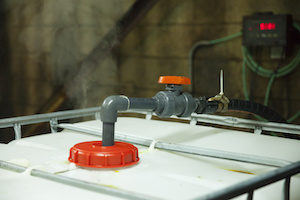FIND THE RIGHT SOLUTION, FASTER - Use our new Product Finders to quickly narrow options & identify your best solutions
Toll Manufacturing Vs. Contract Manufacturing – What’s The Difference?
August 8, 2025

What is Toll Manufacturing? Everything You Should Consider
Toll manufacturing, sometimes referred to as toll processing, is a business arrangement where one company outsources the production of its products or raw materials to another specialized company. In this model, the customer provides the raw materials, while the toll manufacturer supplies the production equipment, skilled labor, and facilities necessary to complete the manufacturing process.
Outsourcing production through toll manufacturing is a cost-effective strategy for companies looking to expand without the burden of heavy capital investments. It also eliminates common challenges like lack of manufacturing expertise, facility limitations, and high labor costs. Plus, toll manufacturers often bring experience across multiple industries, offering valuable insights into product formulation and processing.
This guide will explain everything you need to consider about toll manufacturing, including how it differs from contract manufacturing, the pros and cons, and the importance of toll manufacturing agreements.
What is Toll Manufacturing?
Toll manufacturing, also known as tolling manufacturing, involves a company outsourcing part or all of its production to a third party while supplying the necessary raw materials or semi-finished goods. The toll manufacturer processes these materials according to exact specifications and may also offer additional services such as warehousing and shipping.
A flat fee, or “toll,” is typically agreed upon before production begins. In this arrangement, the customer maintains responsibility for sourcing and ensuring the quality of raw materials, while the toll manufacturer ensures the processing meets agreed standards. Toll manufacturing is commonly used when specialized equipment, certified facilities, or technical know-how is required.
It’s important to note that in toll manufacturing, companies may sometimes need to share confidential information, formulas, or trade secrets, making formal toll manufacturing agreements critical for protecting intellectual property.
Contract Manufacturing vs. Toll Manufacturing
While contract manufacturing and toll manufacturing are often confused, there is a key difference.
In contract manufacturing, the third-party manufacturer is responsible not only for production but also for sourcing and purchasing raw materials. Contract manufacturers handle the full process from raw material procurement to final product delivery, offering a true turnkey solution.
On the other hand, toll manufacturing keeps raw material control in the hands of the client. The customer provides all the materials, and the toll manufacturer focuses solely on production and processing.
Understanding the difference between contract manufacturing and toll manufacturing helps businesses choose the right model depending on their needs, control preferences, and production goals.
Pros and Cons of Toll Manufacturing
Pros:
-
Capital savings: No need for major investments in specialized equipment, production lines, or facilities.
-
Material handling expertise: Toll manufacturers are skilled in handling sensitive or complex raw materials, reducing contamination risks.
-
Flat-rate pricing: Costs are predictable since toll fees are typically agreed upon upfront, regardless of future market prices.
-
High efficiency: Toll companies often specialize in specific processes, leading to faster and more efficient production.
-
Customization options: Companies can create tailored formulations and packaging solutions without heavy infrastructure investments.
-
Access to skilled labor: Toll manufacturers provide access to specialized, trained labor without direct hiring expenses.
-
Supply chain control: Customers maintain control over raw material quality and sourcing.
-
Production scalability: Particularly valuable for chemical toll manufacturing, where certifications and regulatory compliance are needed.
-
On-demand services: Companies can scale up production for special projects or pilot runs without major financial commitments.
Cons:
-
Intellectual property risks: Sharing proprietary information with a third party can pose risks if confidentiality agreements aren’t in place.
-
Production delays: Scheduling conflicts at the toll manufacturing facility can impact timelines.
-
Selective outsourcing issues: Toll manufacturers may only be contracted for complex or less profitable production steps, leading to possible tensions.
Pros and Cons of Contract Manufacturing
Pros:
-
Specialized skills and patented processes: Companies can access high-end manufacturing expertise without direct investment.
-
Cost savings: No need for heavy investment in production infrastructure.
-
Scalability: Easy to meet spikes in demand by contracting multiple manufacturing partners.
Cons:
-
Loss of control: Outsourcing the entire production process means depending heavily on external partners for quality and delivery timelines.
-
Confidentiality concerns: Like toll manufacturing, sharing sensitive trade secrets can expose a company to competitive risks.
What is a Toll Manufacturing Agreement?
A toll manufacturing agreement, sometimes called a tolling agreement, is a formal contract between the company providing raw materials and the third-party manufacturer. This agreement outlines terms related to processing, confidentiality, intellectual property protection, fees, quality standards, and liability.
A strong toll manufacturing agreement protects trade secrets, ensures compliance with production standards, and sets clear expectations for both parties. Tailoring the agreement to the specific production project is crucial, although many companies start with a toll manufacturing agreement template.
Conclusion
Toll manufacturing is a strategic way to expand production capabilities without heavy capital investments. By partnering with an experienced toll manufacturer, companies can gain access to skilled labor, specialized equipment, and certified facilities while retaining control over their raw materials and formulations.
Whether you are considering toll manufacturing for chemical production, custom formulations, or specialty products, having a robust toll manufacturing agreement in place ensures transparency and protects your business interests.
Outsourcing through toll manufacturing — or, depending on your needs, through full contract manufacturing — can be a smart, cost-efficient way to accelerate growth and bring products to market faster.
If you’re exploring toll manufacturing or contract manufacturing options, it’s important to find a partner who aligns with your quality standards, confidentiality needs, and production goals.

